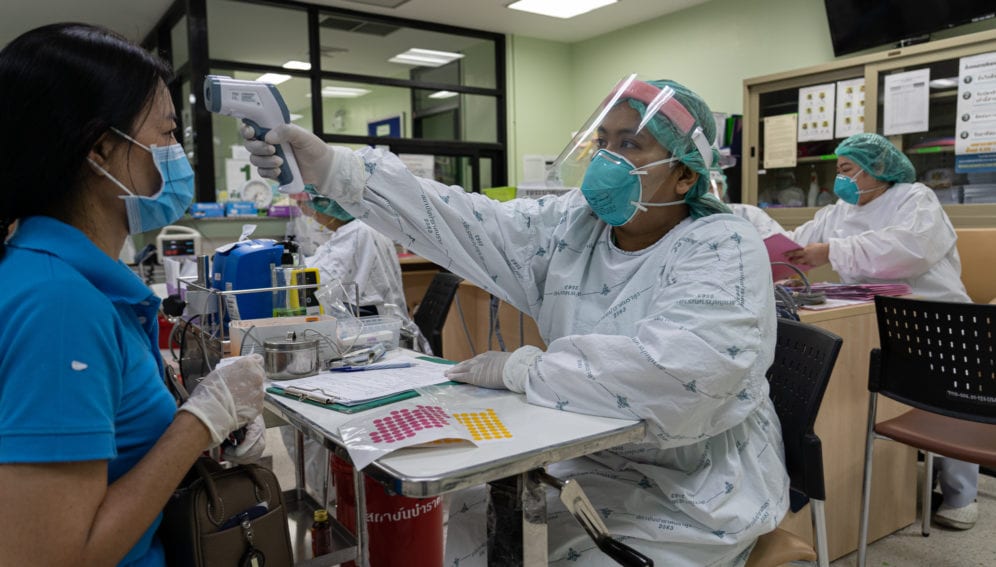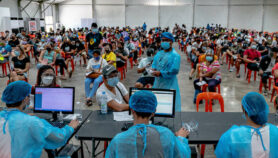15/04/20
Debate: Should gender analysis be embedded in epidemic responses?

Send to a friend
The details you provide on this page will not be used to send unsolicited email, and will not be sold to a 3rd party. See privacy policy.
THE LIVE SESSION OF THIS DEBATE HAS ENDED: Below is the video recording of the session of April 22, 2020
Streaming on YouTube
Women are on the coronavirus frontlines as healthcare workers and primary caregivers, but policy responses often fail to consider how gender and epidemics interact. Health policies that fail to recognise the different needs of genders cannot effectively mitigate the impacts of pandemics, such as the novel coronavirus.
In this special SciDev.Net debate, we considered: Are more men dying of COVID-19 than women? Are women at greater risk of violence in lockdown? In stretched health systems, who will receive priority care and who could miss out? Do diagnostics, treatments and vaccine trials take gender into consideration? Does personal protective equipment keep everyone equally safe? And why is sex disaggregated data central to all these questions?
The expert panel, was moderated by SciDev.Net, on Wednesday, 22 April from 2pm-3pm GMT as we debated why gender analysis must be central in global health emergencies.
Our panelists were:
- Sarah Hawkes: professor of global public health, University College London Institutional Research Information Service; co-founder and co-director of Global Health 50/50.
- Roopa Dhatt: executive director and co-founder, Women in Global Health; internal medicine physician.
- Giampiero Favato: director, Institute of Leadership and Management in Health, Kingston Business School, Kingston University London; editor of the American Public Library of Science journal PLOS ONE.
-
Blessing A. Odogwu: plant science and biotechnology lecturer, University of Port Harcourt; member of the Organization for Women in Science for the Developing World (OWSD).
| Cities | Time |
|---|---|
| Los Angeles | 7am-8am |
| New York | 10am-11am |
| Rio de Janeiro | 11am-12pm |
| London | 3pm-4pm |
| Cairo | 4pm-5pm |
| New Delhi | 7.30pm-8.30pm |













